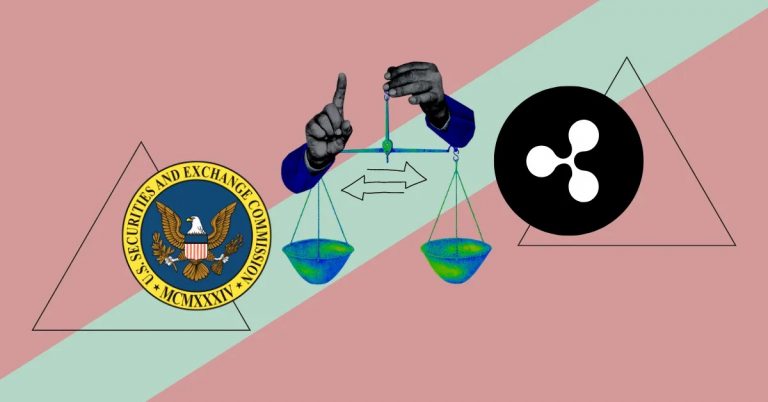
Ripple Labs has withdrawn its cross-appeal in the ongoing legal dispute with the U.S. Securities and Exchange Commission (SEC) over XRP token sales, signaling an intent to resolve the nearly five-year battle. CEO Brad Garlinghouse announced on June 27, 2025, that Ripple is dropping its appeal, expecting the SEC to follow suit, as both parties aim to close the case.
The decision follows a July 2023 ruling by Judge Analisa Torres, which found that XRP sales on public exchanges did not violate securities laws, but institutional sales worth $728 million did, resulting in a $125 million fine and an injunction against Ripple. A proposed settlement to reduce the fine to $50 million and lift the injunction was rejected by Torres on June 26, prompting Ripple to accept the original penalty and injunction to end the dispute.
The SEC is expected to retain $50 million of the fine, with $75 million returned to Ripple, pending court approval. This resolution marks a significant step toward regulatory clarity for XRP, with XRP prices rising modestly by 1.4% following the announcement. Ripple’s decision to withdraw its cross-appeal in the SEC lawsuit, initiated in December 2020, aims to conclude a nearly five-year legal saga. By accepting the $125 million fine and injunction, Ripple seeks to avoid further litigation costs and uncertainty, potentially paving the way for regulatory clarity for XRP and the broader cryptocurrency industry.
Register for Tekedia Mini-MBA edition 19 (Feb 9 – May 2, 2026).
Register for Tekedia AI in Business Masterclass.
Join Tekedia Capital Syndicate and co-invest in great global startups.
Register for Tekedia AI Lab.
The 2023 ruling by Judge Analisa Torres, which determined that XRP sales on public exchanges were not securities but institutional sales violated securities laws, sets a precedent. Ripple’s compliance with the ruling could stabilize XRP’s legal status, potentially boosting investor confidence and enabling broader adoption in financial systems. The settlement involves Ripple paying a $125 million fine, with $75 million potentially returned if the court approves the SEC retaining $50 million. This resolution avoids the higher costs of prolonged litigation but still imposes a significant financial burden on Ripple.
XRP’s price rose 1.4% following the announcement, reflecting cautious market optimism. The resolution could encourage other crypto firms to settle with the SEC rather than engage in lengthy legal battles, potentially shaping future SEC enforcement actions. However, it may also reinforce the SEC’s authority to regulate institutional crypto sales as securities. By ending the appeal, Ripple can focus on business operations, partnerships, and global expansion, particularly in markets with clearer crypto regulations.
This move may also position Ripple to advocate for more favorable U.S. crypto policies under potential new SEC leadership or legislative changes. The case underscores tensions between crypto firms and the SEC over whether digital assets like XRP are securities. Ripple’s partial victory (public exchange sales not deemed securities) is seen as a win for the industry, but the fine for institutional sales reinforces the SEC’s regulatory reach, creating ongoing uncertainty for other projects.
The U.S.’s stringent regulatory approach, exemplified by the SEC’s actions, contrasts with more crypto-friendly jurisdictions like Singapore or the EU, where Ripple has expanded operations. This divide pushes firms to operate offshore, potentially stifling U.S. innovation. The crypto community is split. Some view Ripple’s settlement as a pragmatic step toward stability, while others see it as capitulation to overly aggressive regulation, potentially emboldening the SEC to target other projects.
Ripple’s decision could bring closure to its legal woes and provide some clarity for XRP, but it highlights ongoing divisions in how cryptocurrencies are regulated, perceived, and adopted globally. The outcome may influence future SEC actions and the broader crypto regulatory framework in the U.S.


